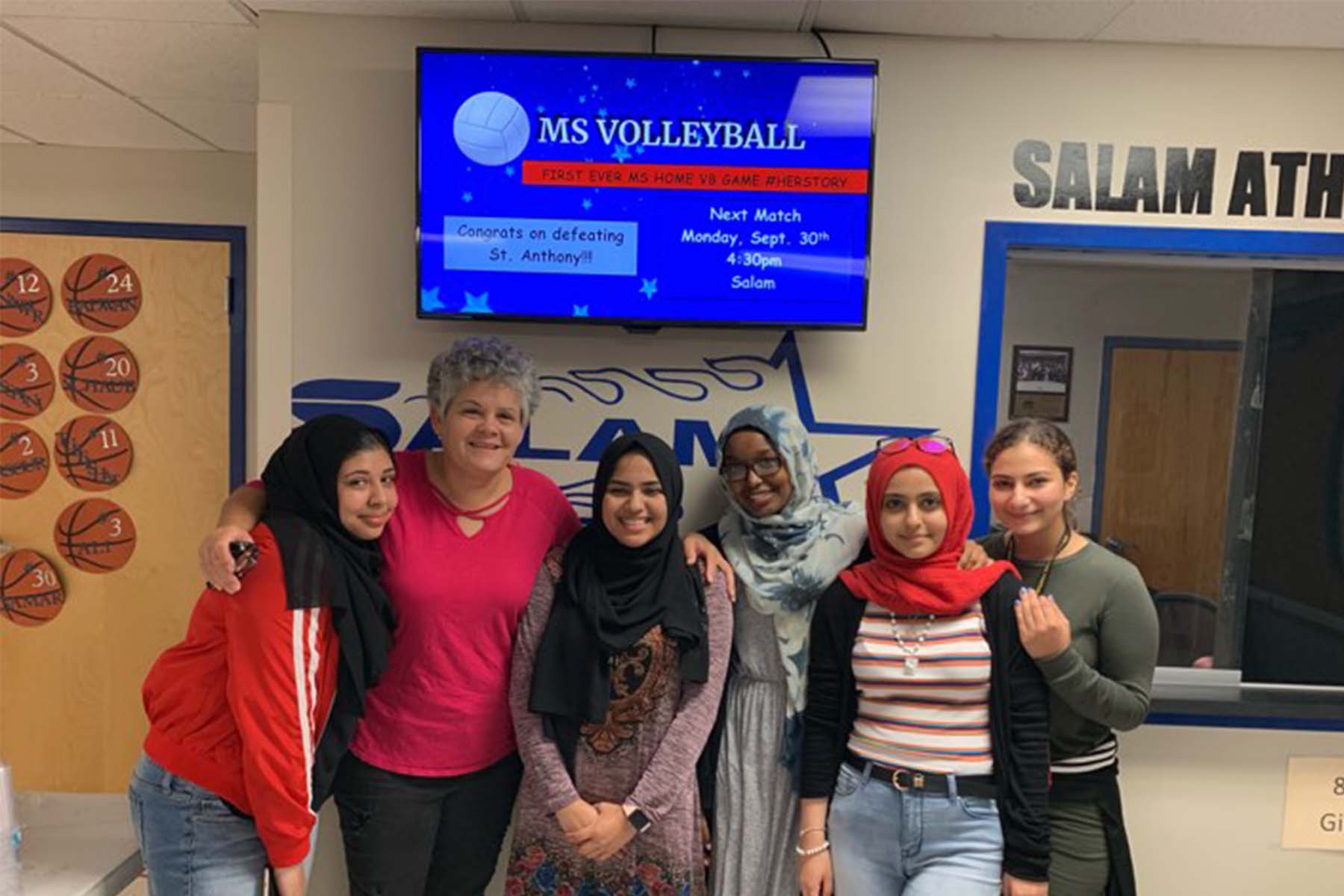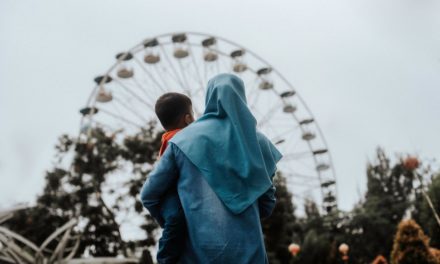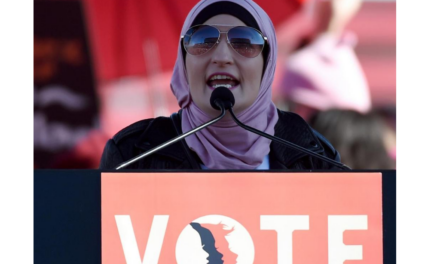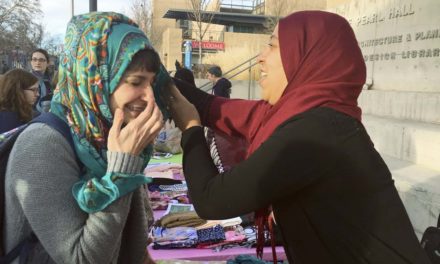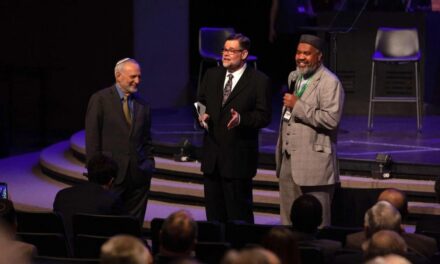Salam Fatayer as “Salam Stars challenge stereotypes in female athletics” for 88 Nine Radio Milwaukee
Salam School
The topic of hijab, a headscarf worn by Muslim women, has always resulted in a variety of opinions. If we add wearing a hijab while competing in a sport, the focus becomes on the attire of the athlete rather than the skillset.
At Salam High School, 4707 S. 13 St., Coach Martie Budnowski says the high school varsity volleyball team is currently in the works of changing the perception around Muslim female athletes that wear a hijab.
“We are right in the middle of changing culture when it comes to female athletics here at Salam,” said Budnowski. “Salam is just starting to get into the ‘It’s okay to win and we can fight to win to win’ mentality, which still needs to grow as opposed to ‘we’re just so glad we get to play.’”
This the first season with Coach Budnowski, and with her addition on the team, Salam Stars had a significant victory against Tenor High School with a five-set match.
Some girls on the team expressed that having a win under their belt gave them confidence and ignited a spark to continue giving it their all, even when sometimes facing bias for wearing a headscarf.
I can’t lie and say I never felt discrimination because I wear hijab,” said Ameera Jaber, student-athlete.
Although some students recognize that facing prejudice on and off the court is prevalent, another student-athlete Phareda Be says that’s not always the case.
“I would go to parks and practice there,” said Phareda Be. “Some girls, I have no idea who they are, they just see me play volleyball and are like, ‘can I join?’ and stuff like that, so I have a positive view when playing volleyball.”
Women that choose to wear a hijab and also participate in a sport shouldn’t be seen as something out of the norm yet the act is treated as such.
For instance, if we take Ibtihaj Muhammad, a 2016 Olympics bronze medalist for fencing, she’s notably known for being the first Muslim American to wear a hijab while competing for the Olympics. Najma Abdi, student-athlete, says that what one decides to wear shouldn’t be a relevant factor when playing volleyball.
“People don’t understand that there is a difference between my skills and what I represent,” said Abdi. “I represent Islam and my skills have nothing to do on whether I’m wearing a scarf or not.”
With every practice and every game, Salam Stars are dismantling the idea that wearing a hijab can be limit one’s ability. The team symbolizes self-acceptance and resilience. At the end of the day, this is a story about a high school volleyball team learning to be better teammates, making friends and practicing to win matches. Just like any other sports team.
